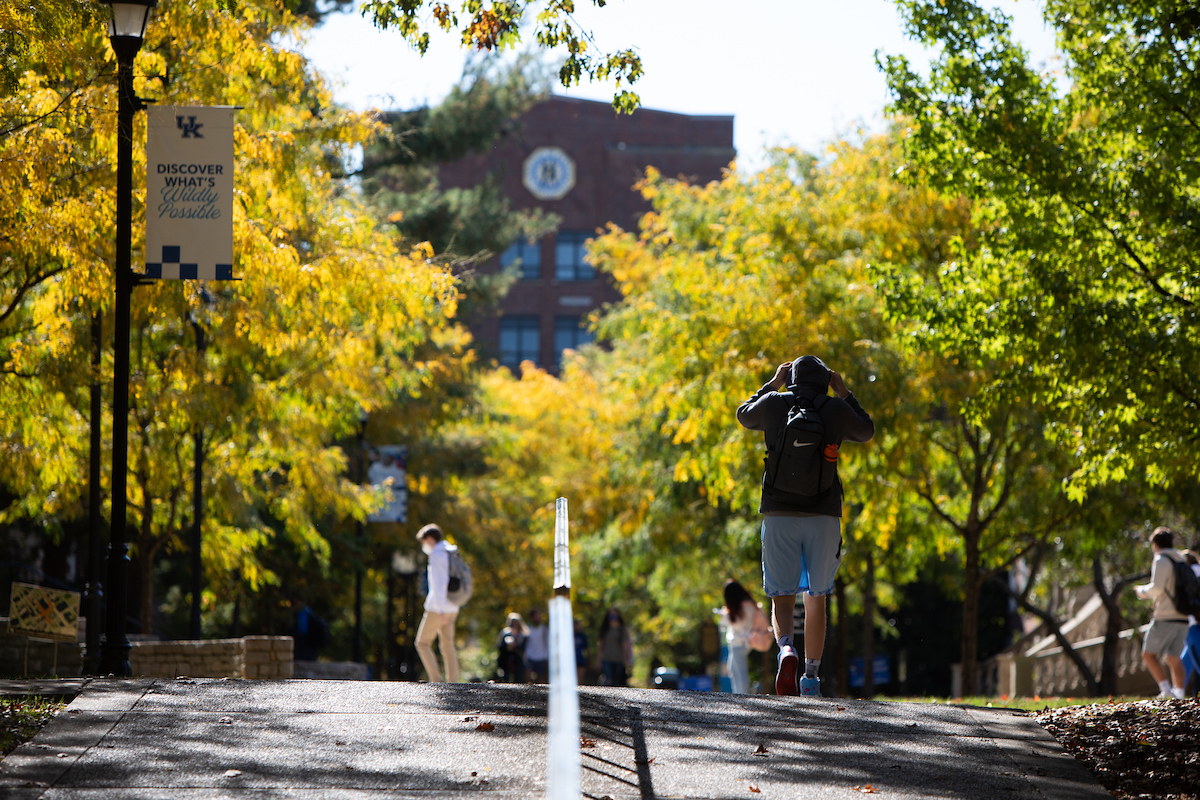
Our World, Our Responsibility to Each Other May 29, 2020
Dear Campus Community,
Louisville. Georgia. Minneapolis. New York.
We may, right now, be physically separated – more than ever before in our lifetimes.
But we can’t be isolated – from the world around us or from the experiences that many of our community members are experiencing now and fearing when we return.
One of the lessons of this COVID-19 era is this: what happens in places that seem remote and physically removed are tragically real and relevant for so many of our colleagues and community members.
A faculty member many of you know walks into a local grocery store, wearing a mask to protect those around him and feels the glare of stares and second glances.
Black men, he says, are asking what kind of mask they should wear to “look non-threatening.”
That’s racism, perhaps subtle, but no less real.
And the incidents that occurred in other cities, both near and far, represent for too many the underlying fact that systemic and systematic racism has disproportionately imprisoned and killed blacks and people of color across decades.
We must admit that it continues to this day and that these events are impacting, in ways explicit and implicit, members of our community and their loved ones.
So, there is the question for us, in this time and at this place: What kind of community do we want to be?
Hundreds of our colleagues are spending countless hours, working in small groups and from often remote locations, planning for how we return to campus this fall. We are calling it a reinvented safe and normal operation.
But the word safe, for us, must mean more than free from the transmission of this virus.
How do we stop the transmission of fear, distrust and hate?
How do we live up to the essence of what I believe we are – a collection of people and ideas, never in complete agreement with one another, but working toward common goals: education and learning; deeper understanding and meaning; solutions and healing; a recognition that we are always more together than we are apart.
I don’t have all the answers. But I do know that, as part of reinventing normal, we must find ways to make normal a better experience for all members of our community.
I have a few suggestions, based on conversations happening with campus colleagues now, for how we can start. But I need your help to build and expand upon them:
- Implementing health and safety measures: As we initiate health policies designed to protect our community this fall from a virus, we must ensure that we don’t further marginalize or stigmatize. We will, for example, have to track and test for the virus in some capacity. We will have to remind people, for at least the foreseeable future, that they can’t congregate in large groups. How we enforce those policies – clearly, sensitively, fairly and with a sense of equity – will be critically important.
- Spaces to gather and build community: When students, faculty and staff return to campus, there will be limits for public health reasons on how and where we can gather. That will particularly impact people of color on our campus, who rely on spaces like the MLK Center as places to foster community. How do we address that need moving forward?
- Our community – Lexington – is also our campus in so many ways:We must confront the question that so much of the concern in this fraught space centers on law enforcement and its relationship with communities of color. What can we do on our campus and in our community to bridge the gaps and divides that exist? We have experts in clinical care and research who are guiding our public health response. But we also have expertise across our campus in pertinent areas such as race, disparities, inequality and inequity. They can help teach and also assist us in the process, as the walls of our Student Center proclaim, to “unlearn fear and hate.”
- Free Speech: Everything in my personal history informs my belief that we only defeat hate with love and that hate speech must be confronted by speech that seeks to educate and illuminate. I still believe that, but I don’t know as an institution, if we have done enough in our past to speak out forcefully enough against hate and divisiveness when we see it by clearly articulating who we are and what we believe. We must find a better path. With free speech comes accountability. We respect that freedom but will and must speak our collective conscience to counter hate speech when it occurs. Could we, for example, create “Principles of Community” to which our institutional community could be held and which would allow UK to meet the spirit of the First Amendment while giving us language to respond to issues wherever we find them? That must include creating spaces for difficult conversations that will enable us to wrestle with uncomfortable truths.
These ideas are only a beginning. We also must acknowledge, starting with me, that conversation and dialogue – however valuable and essential – is not enough. If we are to be a community, we have to find solutions.
We live in a world that has been enveloped by an invisible virus – millions infected, more than 100,000 in our country alone now dead. We have, perhaps, been given an opportunity in the midst of crisis, too.
We can’t eliminate seeds of hate, some planted long ago in gardens near and far from here. They remain deeply rooted in our midst. But in reinventing ourcampus, we have a chance not only to create new physical paths on ourcampus; we have a chance to look at each other – our brothers and sisters – with fresh eyes and from different perspectives.
We have a chance to redefine our community. We must take it.
Eli Capilouto